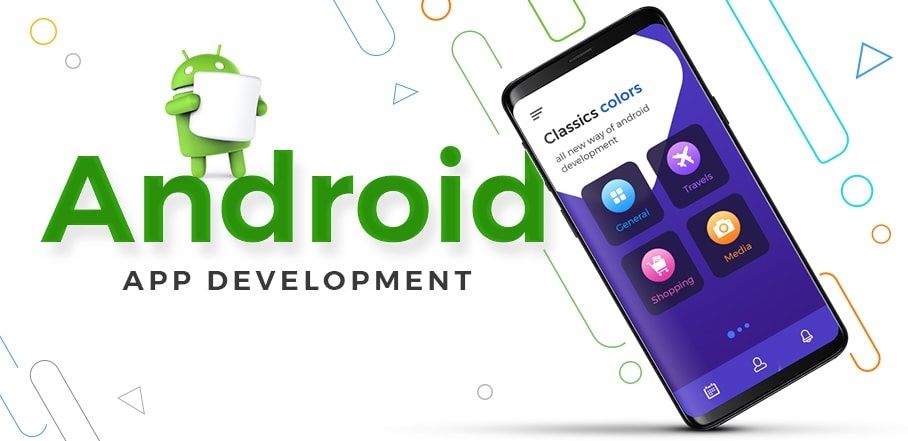The Android operating system, developed by Google, has ignited a revolution in the world of mobile technology. From its unassuming beginnings to its current position as a dominant force in the smartphone market, Android has fundamentally reshaped how we interact with technology. It has fostered a wave of innovation, making smartphones more accessible and user-friendly for a global audience.
This article explores the remarkable journey of Android, its impact on shaping the future of technology, and the exciting possibilities that lie ahead.
A Humble Beginning: The Seeds of the Android Revolution
The story of Android begins in 2003, with a small startup named Android Inc. Their vision was to create an open-source, Linux-based operating system specifically designed for mobile devices. Google acquired Android Inc. in 2005, recognizing the immense potential of this innovative platform.
In 2008, the first Android smartphone, the HTC G1, was unveiled. It ushered in a new era of mobile technology, characterized by:
- Openness: Unlike its competitors, Android was an open-source platform, allowing manufacturers and developers greater flexibility to customize the user experience.
- Affordability: By leveraging open-source technologies, Android devices could be produced at lower costs compared to closed-system phones. This opened the door for a wider range of consumers to access smartphones.
- Innovation: The open nature of Android fostered a vibrant developer community. This led to a surge of app creation, offering users a vast selection of tools and entertainment options.
Android’s Rise to Dominance: Reshaping How We Connect
The early advantages of openness and affordability propelled Android’s rapid rise. Here’s a closer look at the key factors that fueled its dominance:
- Hardware Diversity: Unlike its competitors with limited hardware options, Android thrived on a diverse ecosystem of manufacturers. From budget-friendly phones to high-end flagships, users had a wider range of choices to suit their needs and budgets.
- App Market Explosion: Google Play Store, the official app store for Android devices, became a treasure trove of applications. Developers flocked to the platform, offering a vast array of apps encompassing communication, productivity, social media, entertainment, and more. This abundance of apps further solidified Android’s position as the go-to platform for a connected world.
- Constant Innovation: Google consistently released new versions of the Android operating system, each packed with improvements and new features. This commitment to ongoing development ensured that Android devices remained at the forefront of technological advancements.
The Impact of Android: A Global Phenomenon
The Android revolution transcended geographical boundaries, impacting how people across the globe interact with technology:
- Bridging the Digital Divide: Android’s affordability made smartphones more accessible in developing countries. This facilitated communication, access to information, and economic opportunities for millions of people.
- Empowering Users: The open nature of Android allowed users to personalize their devices and customize their experience. This shift in user control empowered individuals to leverage technology in ways that best suited their needs.
- Driving Mobile Commerce: The proliferation of smartphones equipped with Android led to a surge in mobile commerce. Users could now shop, bank, and manage finances conveniently from their mobile devices.
Android and the Future: A Glimpse into What Lies Ahead
As technology continues to evolve, Android is poised to play a pivotal role in shaping the future:
- Integration with Artificial Intelligence (AI): Android is increasingly incorporating AI features, enabling features like voice assistants, image recognition, and predictive text. This trend is expected to continue, leading to a more intelligent and personalized user experience.
- The Rise of Foldable and Wearable Devices: Android is well-positioned to adapt to the evolving landscape of mobile devices. With the rise of foldable smartphones and wearable tech like smartwatches, Android’s flexibility will be crucial in delivering seamless experiences across these diverse platforms.
- Focus on Security and Privacy: With growing concerns about data security and privacy, Android is prioritizing these aspects. We can expect advancements in user data protection and secure authentication methods.
A Look Ahead: Potential Challenges and Opportunities
While the future of Android looks bright, there are potential challenges to consider:
- Fragmentation: The open nature of Android, while fostering innovation, can also lead to fragmentation across devices due to variations in hardware and software versions. Addressing this issue will be crucial in ensuring a smooth user experience across the entire Android ecosystem.
- Security Threats: The open nature of the platform also presents security challenges. Staying ahead of evolving cyber threats will require ongoing efforts from Google and developers.
- Balancing Customization and User Experience: While customization is a key strength of Android, it can also lead to a cluttered and confusing
FAQs:
Here are some frequently asked questions regarding the Android revolution:
1. What are the advantages of Android over other mobile operating systems?
Android offers several advantages, including affordability, hardware diversity, a vast app selection, and an open platform that allows for customization.
2. How will AI change the future of Android?
AI integration will lead to a more intelligent and personalized user experience. Imagine voice assistants that anticipate your needs, image recognition that helps you explore your surroundings, and predictive text that completes your thoughts before you even finish typing.
3. What are foldable phones and how will Android adapt?
Foldable phones offer a larger display that can be folded when not in use. Android’s flexibility will be essential in optimizing the operating system for these new form factors, ensuring a seamless experience when switching between phone and tablet modes.
4. How will Android address security concerns?
Security is a top priority for Google. We can expect advancements in data protection, secure authentication methods, and ongoing efforts to combat emerging cyber threats.
5. What is Android fragmentation, and how does it affect users?
Fragmentation refers to the variations in hardware and software versions across different Android devices. This can sometimes lead to compatibility issues or apps not working optimally on certain devices. Google is working on ways to minimize fragmentation and ensure a consistent user experience.
6. How can I personalize my Android device?
Android offers a high degree of customization. You can change launchers, themes, wallpapers, ringtones, and even install custom ROMs (user-created operating systems) to completely alter the look and feel of your device.
7. Where can I find apps for my Android device?
The Google Play Store is the official app store for Android devices. It offers a vast collection of free and paid apps across various categories.
8. How do I stay updated on the latest developments with Android?
Several resources can keep you informed about the latest Android news and updates. You can follow Google’s official Android Developers blog, tech news websites, or subscribe to YouTube channels dedicated to Android.
Conclusion: The Enduring Legacy of the Android Revolution
The Android revolution has undeniably reshaped the mobile technology landscape. Its focus on openness, affordability, and user experience has empowered billions of people worldwide. As we look towards the future, Android’s commitment to innovation and adaptation ensures its continued role in shaping the ever-evolving world of technology. From the seamless integration of AI to navigating the exciting world of foldable devices, Android is positioned to be at the forefront of these advancements. Whether you’re a seasoned Android user or just starting your mobile journey, the Android revolution promises an exciting future filled with possibilities.pen_sparktunesharemore_vert















+ There are no comments
Add yours